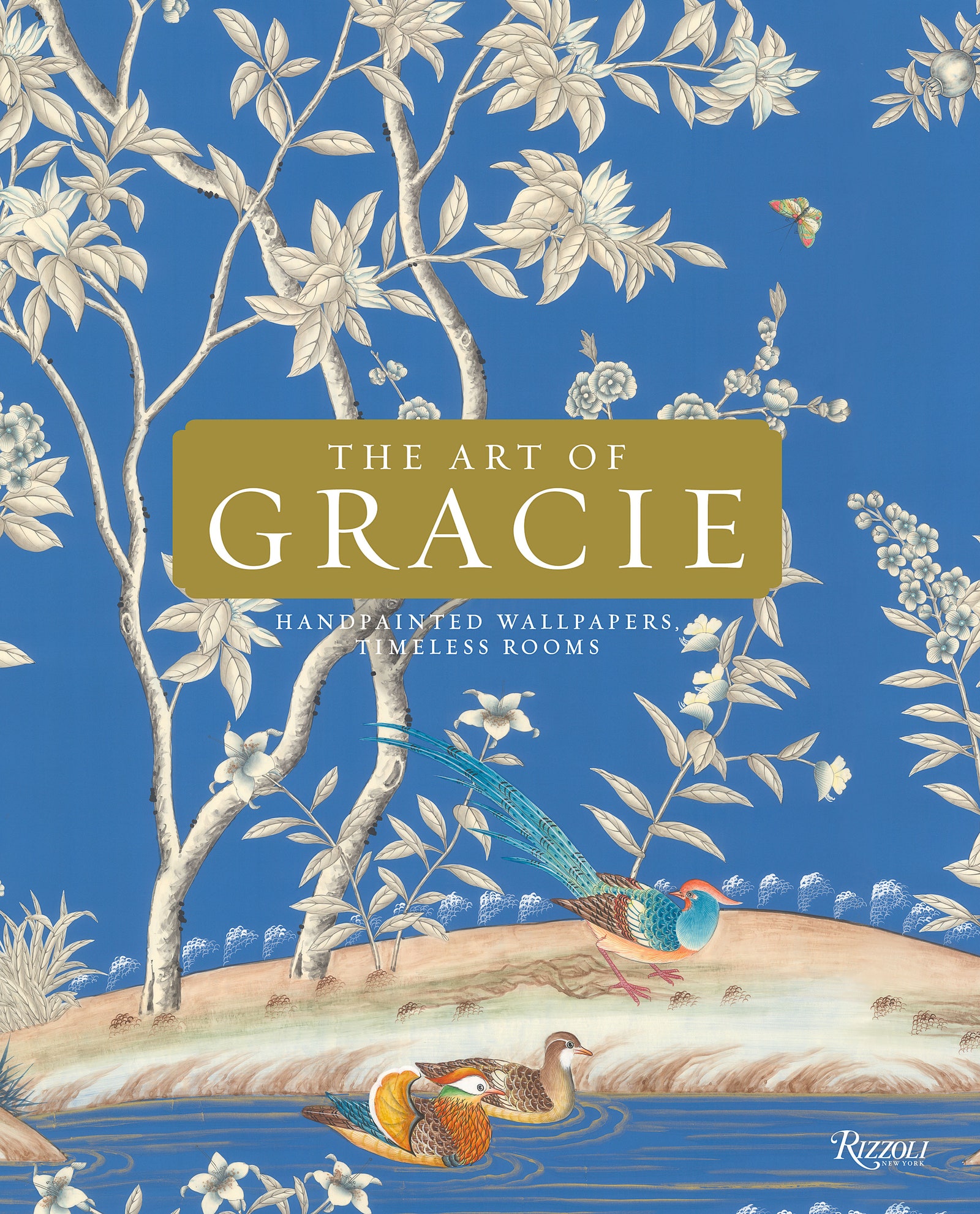Fast-forward to the 1950s: After Nast’s death, Gracie, the hand-painted and antique wallpaper dealer, purchased that famed surround and, in 2011, sold the remnants to interior designer Michael S. Smith. “I was always obsessed with its distinctive architectural quality,” says the AD100 talent, who installed restored fragments in his New York dining room. “There’s a real magic to it.”
For decades, Gracie, a family-run company that celebrates its 126th anniversary this year (they just published The Art of Gracie with Rizzoli), dealt in top-shelf antiques such as this one. At some point when clients started requesting extensions or adaptations to fit the particular rooms, the firm began offering hand-painted coverings based on this and other historic specimens. Such papers have landed in luxurious homes steadily since, oblivious to trends. As fifth-gen creative director Jennifer Gracie reasons, “Beauty never goes out of style.”
In 2016, when interior designer Alex Papachristidis inquired about this Ming Garden pattern for the Kips Bay Decorator Show House, Gracie worked with him on a spin-off—supersized and recolored in grisaille—suited to the grand proportions of the dining room. “It’s actually an incredible bargain,” reasons Papachristidis, acknowledging the hefty price tag. “You don’t need to buy paintings! The wallpaper is the artwork.” graciestudio.com

